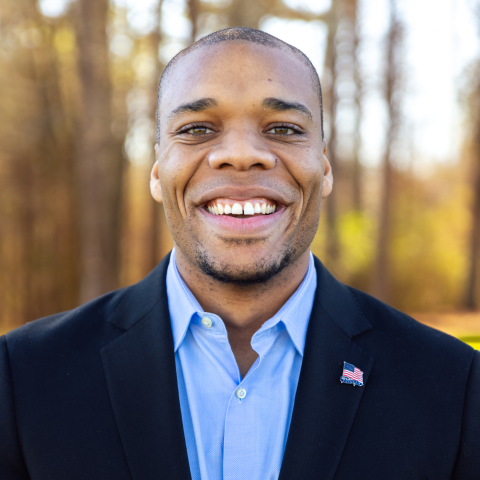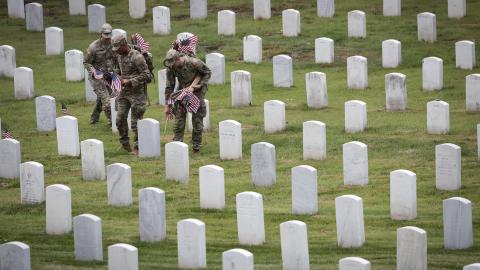Today, millions of young Americans will wake up and acknowledge it's Memorial Day but feel increasingly detached from the meaning of the holiday. Indeed, a recent survey showed that 50% of America’s youth admit they know “little to nothing” about military service. In a country where only 1% of our society is currently serving in the U.S. military, the remaining 99% are more disconnected than ever before. Most young Americans can barely name a veteran who plays a role in their life, much less someone who paid the ultimate sacrifice. But that’s why we need Memorial Day this year more than ever before.
The civil-military divide is growing at a rapid pace. As each generation passes, military service is becoming more of a family business. Today, nearly 80% of those recently recruited in the Armed Forces hail from a military family. While it’s admirable that service is being passed down through families, this trend has its drawbacks. For those outside insular military communities, service to our country feels further and further away.
But today is not a day to be recognized only by those who have lost loved ones in combat or are a part of a military community. It’s a day for all Americans to come together and pay tribute to those who died for our freedom. After all, their service wasn’t just for those Americans who might one day don the uniform — it was for all of us. That’s why all of us ought to remember their sacrifice.
It might seem odd to memorialize people that we’ve never met, which is why Americans can get involved in meaningful activities at the local level. We can attend a Memorial Day event, or volunteer to plant flags at a military base or nearby veterans’ cemetery. We can write a note of gratitude to Gold Star families who lost their loved one in defense of our nation. Or, at the most basic level, we can at least take a moment to reflect and say a prayer of gratitude to a service member who we never met—but who nonetheless died to preserve this country’s freedom.
In fact, this is what Congress envisioned when Memorial Day became an official holiday in 1950. The idea to “never forget” the fallen was not intended to stay within the confines of military bases. The statute which introduced the holiday to the American calendar knew that the relevance of Memorial Day for “present and future generations of people of the United States” depended on celebrating service through “local and national observances.” Indeed, what worried members of Congress in 1950—that “greater strides” were not being made “to demonstrate appreciation for those loyal” Americans—should worry us in 2023.
Fortunately, often the most meaningful strides we can make are the most accessible. Local activities tie service members back to the communities and families where they came from. Every American can participate in these gatherings.
Ultimately, Memorial Day is more than just honoring a specific person. Its purpose is to underscore the fundamental importance of service to the United States. Service to our fellow citizens up to, and including, laying down one’s life. Activities that unite individuals with and without connections to the military get to the heart of why Memorial Day exists. Let’s remember that today, and every day.

















